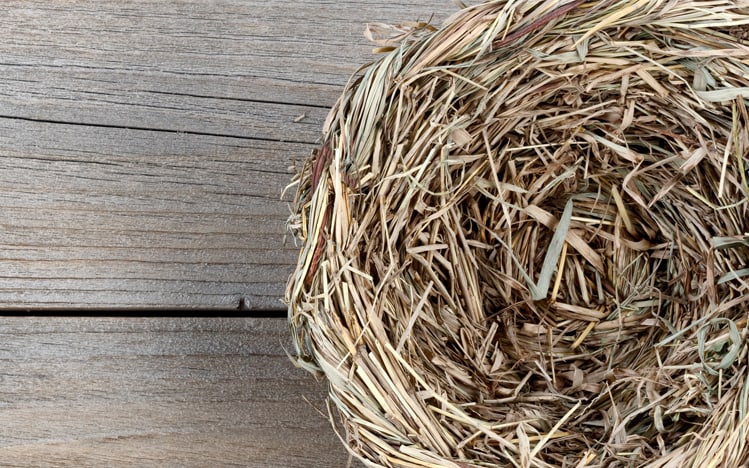
Spot the Birds Nests While They’re Still in Use
You probably already know you cannot by law disturb a bird’s nest if it is being used. Once you see one, you must leave it in place and cause no damage or harm to the nest, any eggs inside it, or the birds using it.
However, this is the time of year to find out where those nests are if they are causing you any issues. If they’re in trees in your garden, there’s not too much to be concerned about. However, some birds get in underneath your roof and nest in there. If that’s the case, you might hear chirping coming from near your guttering. You might end up with a nest inside your front porch, causing bird mess to appear and look unsightly around that area.
Don’t touch – just observe
If you do have birds nesting in your roof or porch or somewhere similar that’s causing a problem, you can’t do anything about it now. However, you can make sure you know where all these nests are, if you have more than one in the immediate area.
Many birds fly to warmer climes for the winter. Come September, they’ll have vacated these nests and disappeared to other locations. This is the time to do something about those nests. You must be sure they are no longer being used before you move them. If in doubt, call a pest control expert with experience in discovering and removing vacated birds’ nests. They can also reach and remove nests in out of the way places you may have trouble reaching safely on your own.
Do birds return to old nests to reuse them?
They do, so if you don’t remove them during the cooler months once the birds have gone, they’ll happily return to them the following year. The sooner you get rid of the nests and install some bird-proofing measures, the better.
It’s also worth thinking about where else the birds might head for if they return to find their nests are gone. A pest control expert can point out potential nesting areas and suggest bird-proofing measures for those as well. Remember, if birds find somewhere else on your property to nest next year, you won’t be able to do anything about it until they have gone.
Prevention is always better than dealing with the issue once it arises – especially since you’re then stuck with them for a few months.
